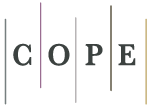 For over 30 years,
For over 30 years, IGI Global has been committed to ethical publication practices. In 2017, IGI Global was formally recognized by the Committee on Publication Ethics (COPE) as a viable, ethical, and prestigious publisher of scholarly content. As a full member of COPE, IGI Global takes the care needed in ensuring that all its publications are produced under the most ethical standards and enhance the field of scholarly knowledge.
Because of this, we would like to inform researchers of a prevalent unethical practice employed, knowingly or unknowingly, by some researchers. By remaining aware of these unethical practices, researchers can properly steer clear of them in the future and avoid sullying their careers and reputations.
 | | Benefits of Publishing With IGI Global: | - Traditional and Open Access Publishing Models
- Honorariums & Royalties
- Free Use of the eEditorial Discovery® Submission System
- Flexible Timelines (Less Than 1 Year, if desired)
- Rigorous Double-Blind Peer Review Process
|
| |
|
|
What is Salami Slicing?
Salami slicing, or data fragmentation, is the practice of splitting up the findings of one large study into multiple papers. Oftentimes, these fragmented papers are reporting on the same research population, methods, and research question with different findings in each piece.
For example, imagine that a researcher completes a study. While it is possible for this researcher to include all the data found in a single paper, they instead decide that they have enough data to publish multiple papers so that they may increase their overall number of publications. While this may seem like a convenient way to boost their number of publications, this practice is unethical and unacceptable.
Why Do Researchers Salami Slice?
Some researchers will use this unethical practice to increase the volume of their publications. This is a quick and easy way for researchers to advance in their careers and receive more funding without merit. Additionally, because the researcher is publishing two or more papers from a single study, it unfairly raises their author citation record.
Salami slicing distorts a researcher’s career from reality so that they may reap extra rewards for work they have only done once. This diminishes the value of each publication they put out, and if discovered, salami slicing can ruin a researcher’s career and reputation within academia.
Why is Salami Slicing Unethical?

Salami slicing prioritizes quantity over quality and is a harm to both the publishing industry and to the overall research field. While salami slicing increases the amount of literature, the amount of knowledge remains the same. This overcrowds journals and books with the same information, potentially making it more difficult to find different, emerging information.
Further, data fragmentation may give findings more importance than they deserve as confused researchers may believe that salami publications were studied twice rather than once. Researchers accessing salami publications will have a higher probability of misinterpreting the data found within a single paper without the context provided by another paper. If these salami publications were published within a single paper, they would be clearer to researchers attempting to access the information.
Salami slicing also wastes the valuable time of editors and peer reviewers. Instead of reviewing one comprehensive paper discussing all the findings of a study, they must review multiple papers each discussing the findings from a single study. Salami publications take time away from other, unique publications that the editors and reviewers could be concentrating on.
There are, however, some cases in which data fragmentation is necessary. If the original dataset is extremely large, or the dataset takes years to collect and/or analyze, producing multiple papers may be necessary. However, it is essential that each paper addresses questions that are important and distinct from one another. If this is an option that a researcher must take, they must first inform the publisher and the editor they are submitting to about any overlapping information. The researcher should also cite their other papers as well as make it clear that each paper comes from a single study.
It is essential that when proposing papers to books or journals, researchers maintain the highest ethical standards for their work. By doing so, they save the valuable time of editors and reviewers, preserve academic integrity, and protect their reputations that could be ruined by a quick attempt at a higher publication count. By staying up to date on unethical practices such as salami slicing, researchers can avoid unknowingly implementing them, and editors can easily spot and reject them before they are added to scientific knowledge.
Should you have high quality papers that you are looking to publish in reputed sources, please visit the
Publications Seeking Submissions page for a list of books and journals currently seeking submissions.
About IGI Global
Founded in 1988, IGI Global, an international academic publisher, is committed to producing the highest quality research (as an active full member of the Committee on Publication Ethics “COPE”) and ensuring the timely dissemination of innovative research findings through an expeditious and technologically advanced publishing process. Through their commitment to supporting the research community ahead of profitability, and taking a chance on virtually untapped topic coverage, IGI Global has been able to collaborate with over 150,000+ researchers from some of the most prominent research institutions around the world to publish the most emerging, peer-reviewed research across 350+ topics in 11 subject areas, including business, computer science, education, engineering, social sciences, and more.
Learn More About IGI Global >
Newsroom Contact
Author Relations Team
(717) 533-8845
authorrelations@igi-global.com
www.igi-global.com